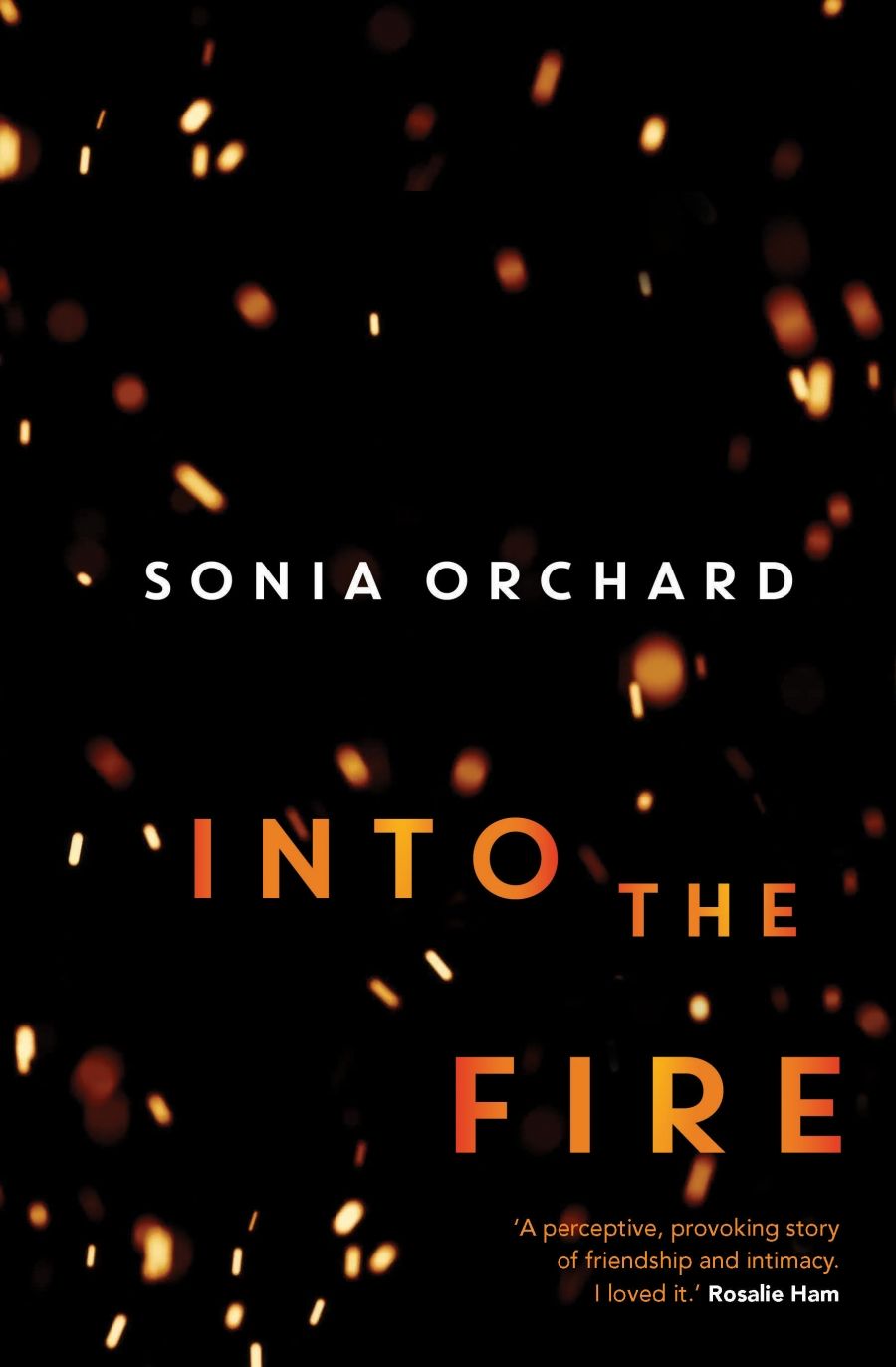
- Free Article: No
- Contents Category: Fiction
- Review Article: Yes
- Online Only: No
- Custom Highlight Text:
The American writer bell hooks had characterised the 1990s as a period of ‘collusion’ between well-educated white women and the capitalist patriarchy (Where We Stand: Class matters, 2000). The new workplace gave these women greater economic power but curbed their ...
- Book 1 Title: Into the Fire
- Book 1 Biblio: Affirm Press, $29.99 pb, 288 pp, 9781925712827
The narrative roams precipitously into the life of the ominous sounding Crow, the enfant terrible of Melbourne University, a rising rockstar, who quickly strikes up a romance with Alice. The trio gets into a string of pardonable (even entertaining) indiscretions in and out of nocturnal music gigs. In this, the novel joins a growing coterie of Melbournica – Monkey Grip (1977), The Slap (2008), Amnesia (2014), and Black Rock White City (2015), among others – stories with a manifest affection for inner-city Melbourne and its volatile underbelly.
There is a menacing side to all this. Alice is afflicted with something of a Sylvia Plath syndrome. Brilliant but overshadowed, exhausted by Crow’s macho glamour, she experiences something similar to a psychotic episode. Her mental health deteriorates upon moving to the Otways where the young couple settles in anticipation of parenthood. This also plants a seed of division between the friends. For Lara, motherhood at this stage of their lives is a betrayal of the convictions that glued them together. Alice is equally adamant: ‘I once asked Alice what she was going to do with herself down here now, expecting to hear of ambitious work, study or activist plans, but she just shot me a stunned glance and said “Mother”.’ Lara’s misgivings are not entirely unfounded. Crow’s exuberance about the birth of their child soon turns into frustration as his once promising career suffers from family responsibilities and distance from Melbourne. He proves an unreliable father and, increasingly, a controlling, beer-bingeing husband.
 Sonia Orchard (photograph by Text Publishing)Lara travels around the world for five years. She seems driven by the shadow of a lingering sense of confinement – perhaps instilled by her father – that keeps permeating outwards, restlessly and vigorously. At some point, she toys with becoming an escort in California. After all, it would look good on her ‘resume of being an interesting, provocative, progressive woman’. The tricky thing is treading the fine line between resistance to, and complicity with, an economy that relegates women to ‘caring’ roles. On her arrival back in Melbourne, Lara finds herself in an ‘enviable’ relationship with an old admirer of hers – Christian, an academic in environmental studies – and a well-paid job at a documentary production company. Michael, the boss, is decidedly inappropriate, but Lara resolves that her time as an ideologue is over; she now asserts herself by ‘getting amongst the men and getting things done’.
Sonia Orchard (photograph by Text Publishing)Lara travels around the world for five years. She seems driven by the shadow of a lingering sense of confinement – perhaps instilled by her father – that keeps permeating outwards, restlessly and vigorously. At some point, she toys with becoming an escort in California. After all, it would look good on her ‘resume of being an interesting, provocative, progressive woman’. The tricky thing is treading the fine line between resistance to, and complicity with, an economy that relegates women to ‘caring’ roles. On her arrival back in Melbourne, Lara finds herself in an ‘enviable’ relationship with an old admirer of hers – Christian, an academic in environmental studies – and a well-paid job at a documentary production company. Michael, the boss, is decidedly inappropriate, but Lara resolves that her time as an ideologue is over; she now asserts herself by ‘getting amongst the men and getting things done’.
Despite Lara’s clear interest in questions of classism and sexism, what she – and to a degree the novel – misses is the relationship between adopting social equality as the new object of struggle and rendering the feminist ethos of liberation dispensable. Into the Fire has traces of a novel of ideas, but it stops short of wholeheartedly appraising the sense of entitlement and complacency among private-school products. This can-do-it-all undertone leaves behind a libertarian aftertaste conceivably disagreeable to some readers.
Things unravel when Christian starts dodging conversations about having babies. Apropos of Alice’s married life, she now has three children, finances are tight, and Crow is ever so erratic. But even a greater appreciation of maternal love cannot fully bridge the rift between the old friends. To what extent, then, is Lara’s guilt about the tragedy that ensues justified? On a level, the novel is a meditation on the existential limitations of progressive thought: why do we do what we do? Are we only drawn to the allure of being accepted into a ‘tribe’? Or, perhaps, there is nothing beyond chemistry, and we are all oxytocin addicts.
Orchard is a superb storyteller. Her writing is intimate and animated, with a lullaby quality. Part homage to motherhood, part critique of third-wave feminism, Into the Fire is a powerful discernment of the complexity and fragility of human behaviour.


Comments powered by CComment